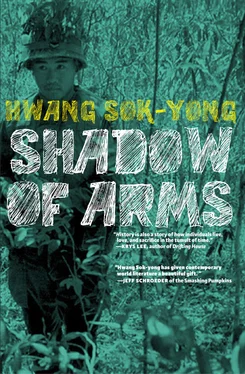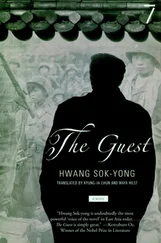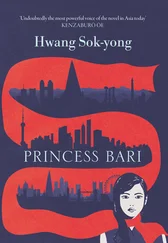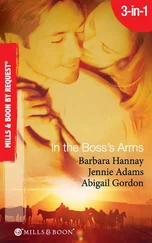“You said for sure that you would give up the cost price, didn’t you?”
The soldier hesitated.
“Look bastard, why you keep changing your mind like a little girl, huh? Did you say so, or didn’t you?”
“The truth is, it wasn’t my money, sir.”
Blue Jacket Kang waved the ID right in front of his nose and said, “Shall I draw up the papers and send you with this to the stockade or would you prefer to take it?”
This time the soldier did not hesitate and hastily snatched his ID, saying, “All right.”
“Where are you sleeping?”
“At the recreation center, sir.”
“You think that’s a private hotel for bastards like you, eh? Get lost,” Kang muttered, pushing the soldier’s chest, who seemed somehow reluctant to depart. The soldier turned away.
Kang spoke again. “One of these days we should raid that rec center and comb through the place. Looks like it’s crawling with AWOLs.”
Then they hopped back into the Jeep and Kang floored the accelerator, gunning the motor loudly. As he drove, Kang said, “The money for today’s drinks has fallen into our hands. You don’t have any pocket money, do you? Here’s twenty dollars. Spend it.”
He extended a hand with four military five-dollar bills. Yong Kyu hesitated.
“What are you waiting for? This is snot-smudged money, anybody’s for the taking.”
Yong Kyu accepted the cash. Since a month’s pay for a combat fighter was forty dollars, it was like being paid for two weeks of duty. That was enough time for him to have gone on dozens of ambush reconnaissance patrols and see half a dozen or more of his comrades, torn and dead, carried away by helicopter. Who knows, it could have been a period in which he himself, a quadruple amputee, was shipped on a hospital vessel to the Philippines.
“We’ll take a look at the navy and the marine PXs tomorrow. Why don’t we go to the Dragon Palace for a Korean dinner and then head over to the Bamboo, what do you say?”
Blue Jacket Kang, who had been doing all the talking, turned around to look at Yong Kyu.
“I’ve just given you a lesson that would have taken you at least two months of experience to begin to understand. Now, what are you going to do for me? As I said before, nothing is free around here.”
Yong Kyu’s mind was elsewhere. He was thinking of his buddies down in the platoon who by now were scouring some back alley in Hoi An for area defense. It did not take longer than smoking a cigarette for a comrade to be killed in action and evacuated. Before long, they would have a hard time remembering his face.
“Hey, Blue Jacket Ahn, what’s your name?”
“Ahn Yong Kyu.”
“Yong Kyu. . would you give me your ration card?”
“My ration card?”
“Headquarters will issue you one tomorrow or the next day. With an American army logistics staffer accompanying you, you can walk into any PX in the area and buy whatever you want. I’ve already reached the limit. In exchange, I’ll transfer everything to you.”
“Transfer what?”
“The secrets. . sum and substance of making money.”
“Take it.”
“Thanks. You get yours from the next new arrival, all right? Anyway, you won’t be needing one until you’re ready to go back home.”
The Jeep retraced the same route and arrived at the main intersection. As it was about to turn, a scooter driving in the same direction almost fell under it. As it skidded to a stop in an attempt to avoid a collision, the scooter hit a tree alongside the road. The Jeep, braking suddenly, spun sideways. Yong Kyu hit his head on the door of the Jeep and Blue Jacket Kang’s face was instantly white with rage.
“You whoring bitches. .!”
His head stuck out the window, Kang was pouring out curses he had picked up from the Americans. Two girls were staggering to their feet. Their white ahozai skirts were smudged with dirt. Already the streets were getting dark. Kang kept looking at his watch as he drove on.
Footnotes:
6 Military Assistance Command
Out beyond the airport the First US Marine Division was dug in around Dong Dao, also known as “Pink Mountain.” The original Vietnamese name “Dong Dao” appeared on their maps, but it was common for the Americans to rename places whenever they found them hard to pronounce. For instance, one of the hamlets in the hills on the way to Tam Ky that had given quite a few young recruits to the Liberation Front had been christened “Charlie Town.” The name meant it was a Viet Cong village; “Charlie” was the American soldiers’ chosen nickname for the little brown devils they were fighting. The American army did not consider Charlie a worthy foe.
Dong Dao was a barren, reddish mountain without a single tree left standing. The Americans had built several defensive bunkers on the high terrain. Stretching off toward the Atwat Mountains on the far side there was a series of valleys, some shallow, some deep, all covered with dense jungle foliage. Most of the villages around Dong Dao had become little commercial satellites of the American military camp. The village of Sondin, where there was a Buddhist temple, remained as it had been before the war. The inhabitants of Sondin were still mostly peasant farmers.
Pham Minh walked the whole way to Dong Dao. The road checks had already been set up. He had to pass through three different checkpoints where police and militia were inspecting IDs and searching through personal effects. He barely made it to Sondin before dark. The night shift teams, fully armed, were heading out to relieve the checkpoint sentries. The village looked peaceful. Families were out in their front yards eating rice from bowls and children were playing in the dusty streets. Uncle Trinh’s house was directly across from the temple, which stood at the center of the village.
In the old days, Uncle Trinh had been the principal of a grammar school in Da Nang. Since leaving the school in 1963, he had been making a living as a horticulturist, cultivating a nursery in his garden. Back in Da Nang he had led the Association of Buddhist Students. Pham Minh, Tanh, and their other friends from Hue were all disciples of the old teacher, fondly calling him “Uncle Trinh.” There were many former students who had gone off into the jungle or become NLF officers who had also called him “Uncle.”
Uncle Trinh was an active participant in the anti-government movement that spread among Buddhists across the country, from May to October of 1963. Tanh criticized him for being too meek a liberal, but Pham Minh deeply respected the man’s vast knowledge of Vietnamese history and highly valued his opinions. There were always youths gathered at his feet.
He was living with his wife and daughter. He had two sons as well, but after the Geneva Accords one of his sons went to Hanoi for good and the whereabouts of his second son were unknown. Pham Minh had not seen the second son since the rainy season of the previous year. Uncle Trinh’s home was wooden and rectangular. Out in the front yard roses and cannas were in full bloom, and behind the house there was a large flowerbed with several species. A table and chairs were set up on the porch, but Uncle Trinh’s seat was empty and only his wife and daughter were sitting there drinking tea.
“Hello.”
“Oh, Minh, when did you come?”
“Is Uncle at home?”
“He’s inside.”
As Pham Minh approached, he could smell a jasmine fragrance wafting from their cups.
“It’s Cholon tea, would you like some?”
As Minh considered whether or not to go inside, the daughter tugged at his sleeve and said, “Father is sleeping now. Please wait till he wakes up. How’s Hue?”
“Been quiet lately.”
“It was in an uproar this time last year, wasn’t it? I heard the city was occupied for two weeks.”
Читать дальше












